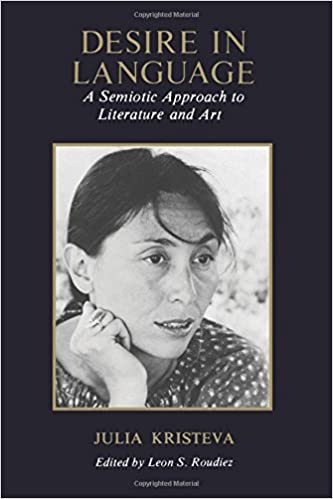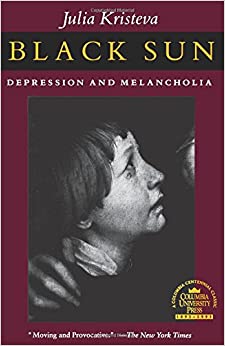Background
Julia Kristeva was born on 24 July 1941 in Sliven, Bulgaria.

1983
Julia Kristeva (Photo by Louis MONIER/Gamma-Rapho)
1998
Cassis, France
Philippe Sollers and Julia Kristeva in Cassis, France in April, 1998. (Photo by Patrick BOX/Gamma-Rapho)
2002
Paris, France
TV Show "Vol De Nuit": Woman's color on May 2, 2002, in Paris, France. Julia Kristeva. (Photo by Frederic REGLAIN/Gamma-Rapho)
2007
Julia Kristeva on February 7, 2007, in Paris, France. (Photo by Frederic SOULOY/Gamma-Rapho)
2008
Paris, France
Julia Kristeva on the "Vol de Nuit" TV show in Paris, France on March 26, 2008. (Photo by Frederic SOULOY/Gamma-Rapho)
2016
Julia Kristeva. (Photo by Jean-Marc ZAORSKI/Gamma-Rapho)
Les Patios Saint-Jacques, 4-14 Rue Ferrus, 75014 Paris, France
Kristeva attended l'Ecole Pratique des Hautes-Etudes.
15 Tsar Osvoboditel Blvd., 1504 Sofia, Bulgaria
Kristeva studied at the University of Sofia.
5 Rue Thomas Mann, 75013 Paris, France
In 1973, Kristeva received her doctoral degree from the University of Paris VII.
French writer and philosopher of Bulgarian origin Julia Kristeva on the set of the literary show Apostrophes. (Photo by Jean-Paul Guilloteau/Kipa/Sygma)
Julia Kristeva attends the TV show "Vol de Nuit." (Photo by Eric Fougere/VIP Images/Corbis)
Paris, France
French writer Julia Kristeva Photographed in Paris, France. (Photo by Eric Fougere/VIP Images/Corbis)
Julia Kristeva. (Photo by Sophie Bassouls/Sygma/Sygma)
Torino, Italy
Julia Kristeva, Bulgarian writer, linguist, psychoanalyst, philosopher, Torino, Italy. (Photo by Leonardo Cendamo)
Torino, Italy
Julia Kristeva, Bulgarian writer, linguist, psychoanalyst, philosopher, Torino, Italy. (Photo by Leonardo Cendamo)





















(Desire in Language traces the path of an investigation, e...)
Desire in Language traces the path of an investigation, extending over a period of ten years, into the semiotics of literature and the arts. But the essays of Julia Kristeva in this volume, though they often deal with literature and art, do not amount to either "literary criticism" or "art criticism." Their concern, writes Kristeva, "remains intratheoretical: they are based on art and literature in order to subvert the very theoretical, philosophical, or semiological apparatus." Probing beyond the discoveries of Sigmund Freud, Jacques Lacan, Roman Jakobson and others, Julia Kristeva proposes and tests theories centered on the nature and development of the novel, and on what she has defined as a signifying practice in poetic language and pictural works. Desire in Language fully shows what Roman Jakobson has called Kristeva's "genuine gift of questioning generally adopted 'axioms,' and her contrary gift of releasing various 'damned questions' from their traditional question marks."
https://www.amazon.com/gp/product/0231048076/ref=as_li_ss_il?ie=UTF8&tag=famouspsychologists-20&linkCode=as2&camp=1789&creative=390957&creativeASIN=0231048076
1969

(In Black Sun, Julia Kristeva addresses the subject of mel...)
In Black Sun, Julia Kristeva addresses the subject of melancholia, examining this phenomenon in the context of art, literature, philosophy, the history of religion and culture, as well as psychoanalysis. She describes the depressive as one who perceives the sense of self as a crucial pursuit and a nearly unattainable goal and explains how the love of a lost identity of attachment lies at the very core of depression's dark heart. In her discussion she analyzes Holbein's controversial 1522 painting "The Body of the Dead Christ in the Tomb," and has revealing comments on the works of Marguerite Duras, Dostoyevsky and Nerval. Black Sun takes the view that depression is a discourse with a language to be learned, rather than strictly a pathology to be treated.
https://www.amazon.com/gp/product/0231067070/ref=as_li_ss_il?ie=UTF8&tag=famouspsychologists-20&linkCode=as2&camp=1789&creative=390957&creativeASIN=0231067070
1987
literary critic novelist philosopher Psychoanalyst semiotician
Julia Kristeva was born on 24 July 1941 in Sliven, Bulgaria.
Kristeva attended French schools in Bulgaria. She went on to study at the University of Sofia. Kristeva continued her education at several universities, including Academie des Sciences en Litterature Comparée, Sofia, and l'Ecole Pratique des Hautes-Etudes, France. In 1973, she received her doctoral degree from the University of Paris VII.
Kristeva became interested in psychoanalysis and became a practicing psychoanalyst in 1979. Her work intensified around the formation of identity and the role of abjection and Otherness play in the process. Her writings of the 1980s include transcripts from her practice as an analyst, such as Tales of Love and Black Sun. Her publication, Powers of Horror: An Essay in Abjection, describes the pre-mirror stage development of the child's entry into the Law of the father as Lacan theorized. For Kristeva, birth itself is a separation within the body, a violent separation from the body of the mother. In the maternal body, excess gives rise to a separation that is material and maintained by a regulation (regarding the availability of the breast) that is prior to the mirror stage. The maternal regulation operates as a law, prefiguring, and providing the grounds of paternal Law as the entry of the child into language and society.
Kristeva's writings maintain this logic of an oscillation between symbolic identity and semiotic rejection or the experience of difference. Revolution in Poetic Language and Powers of Horror are focused on material maternal rejection, which prefigures signification and sets up the logic of rejection. Tales of Love and Black Sun: Depression and Melancholy are focused on primary narcissism, which prefigures all subsequent identity and sets up the logic of repetition. Strangers to Ourselves is focused on rejection or difference within identity.
Julia Kristeva's contributions were recognized in the fields of psychoanalysis, linguistics, political and cultural analysis, and culminated in her being awarded the Holberg International Memorial Prize in 2004 and Hannah Arendt Award for Political Thought in 2006. She was also bestowed with the title of "Knight of the Order of Arts and Letters" by the French government in 1990.
She was awarded honorary degrees from Western Ontario University (1995), Victoria University (1997), Harvard University (1999), University of Belgium (2000), University of Bayreuth (2000), University of Toronto (2000), University of Sofia (2002), New School University (2003).
Kristeva accepted the chair of linguistics at the University of Paris and remains a visiting faculty member at Columbia University in New York.
Julia Kristeva is not a philosopher in the formal sense. She was not educated in the discipline. Her work does not pertain exclusively to any of the commonly accepted domains of philosophical inquiry, although her projects continue to have an impact on them. Rather, she has frequently been called a linguist, a psychoanalyst, or a novelist.
In 2004, Kristeva was awarded the first Holberg International Memorial Prize for innovative work on issues, "at the intersection between linguistics, culture, and literature." And the chairperson of the Holberg selection panel noted that: "Julia Kristeva... demonstrates how advanced theoretical research can also play a decisive role in public social and cultural debate in general." Regarding the latter, Kristeva has applied her psychoanalytic insights to the issues of young children and language acquisition, to adolescence and the importance of the need to believe that self-harm and violence ("radical evil") can be ameliorated, as well as to the way psychoanalysis can transform existing approaches to disability.
(In Black Sun, Julia Kristeva addresses the subject of mel...)
1987(Desire in Language traces the path of an investigation, e...)
1969Julia Kristeva is a feminist. She claims that there are three phases of feminism. The first phase, which she rejects, seeks equality of sexes disregarding the inherent sexual differences.
She also rejects the second phase which terms language and culture as masculine and calls for their total abandonment. In her defense, Kristeva maintains that language and culture are what makes people speaking beings and women, being part of this group, have no need for this abandonment.
The third phase, which is endorsed by Kristeva, seeks to reconceive identity and difference and their relationship.
Kristeva's theories synthesized elements from such dissimilar thinkers as the French psychoanalyst Jacques Lacan, the French philosopher Michel Foucault, and the Russian literary theorist Mikhail Bakhtin. Two distinct trends characterize her writings: an early structuralist-semiotic phase and a later psychoanalytic-feminist phase. During the latter period Kristeva created a new study she called "semanalysis," a combination of the psychoanalysis of Sigmund Freud and the semiology, or semiotics (the study of signs), of the Swiss linguist Ferdinand de Saussure and the American philosopher Charles Sanders Peirce. Her most important contribution to the philosophy of language was her distinction between the semiotic and the symbolic aspects of language. The semiotic, which is manifested in rhythm and tone, is associated with the maternal body. The symbolic, on the other hand, corresponds to grammar and syntax and is associated with referential meaning. With this distinction, Kristeva attempted to bring the "speaking body" back into linguistics and philosophy. She proposed that bodily drives are discharged in language and that the structure of language is already operating in the body.
Quotations:
"Love is the time and space where 'I' give myself the right to be extraordinary."
"When the starry sky, a vista of open seas, or a stained-glass window shedding purple beams fascinate me, there is a cluster of meaning, of colors, of words, of caresses, there are light touches, scents, sighs, cadences that arise, shroud me, carry me away, and sweep me beyond the things I see, hear, or think, The "sublime" object dissolves in the raptures of a bottomless memory. It is such a memory, which, from stopping point to stopping point, remembrance to remembrance, love to love, transfers that object to the refulgent point of the dazzlement in which I stray in order to be."
"Significance is inherent in the human body."
"The depressed person is a radical, sullen atheist."
"Naming suffering, exalting it, dissecting it into its smallest components - that is doubtless a way to curb mourning."
"Today's milestone is human madness. Politics is a part of it, particularly in its lethal outbursts. Politics is not, as it was for Hannah Arendt, the field where human freedom is unfurled. The modern world, the world of world war, the Third World, the underground world of death that acts upon us, do not have the civilized splendor of the Greek city state. The modern political domain is massively, in totalitarian fashion, social, leveling, exhausting. Hence madness is a space of antisocial, apolitical, and paradoxically free individuation."
"Abjection is above all ambiguity. Because, while releasing a hold, it does not radically cut off the subject from what threatens it - on the contrary, abjection acknowledges it to be in perpetual danger."
"That faith be analyzable does not necessarily imply a method for getting by without it."
Société Psychanalytique de Paris, American Academy of Arts and Sciences, British Academy, l'Académie Universelle des Cultures.
Julia Kristeva married the novelist Philippe Sollers, born Philippe Joyaux, on August 2, 1967. The couple has a son, David.
